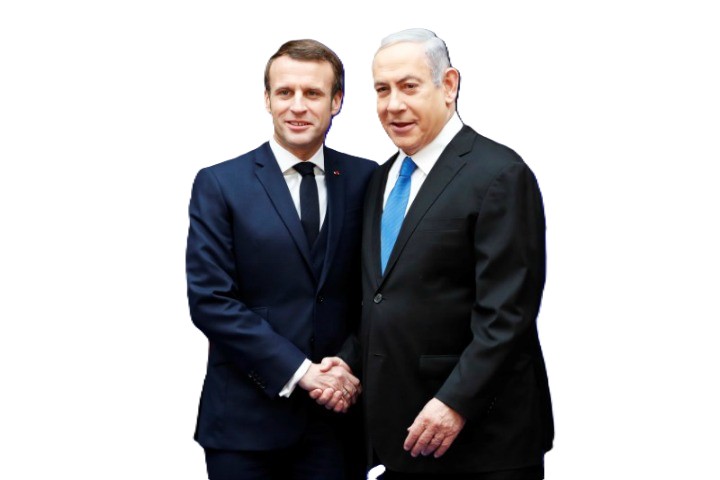Greece’s Evolving Ties with Israel and Palestine
4 min read
How Greece transitioned from supporting Palestine to forging a powerful strategic partnership with Israel amid shifting global politics.
Since the restoration of democracy in 1974, Greece’s relations with Israel and Palestine have mirrored the country’s political transitions and international alignments. While the public leaned toward the Palestinian cause for decades, a major shift occurred in the 2010s when Greece and Israel emerged as firm allies in energy and defense partnerships. This evolution reflects how changing leaderships and geopolitical realities reshaped Greece’s Middle Eastern diplomacy.
Post-Dictatorship Priorities and Regional Tensions
After the fall of the military junta in 1974, Greece’s immediate concern was the Turkish invasion of Cyprus. The new government under Konstantinos Karamanlis withdrew from NATO’s military wing in protest and focused inward, prioritizing national recovery over foreign policy. During this period, the Middle East saw peace efforts, such as the Camp David Accords between Israel and Egypt in 1978, marking temporary stability in the region.
Greece’s Arab Diplomacy of the 1970s
In the late 1970s, Greece sought closer diplomatic and economic ties with Arab countries, motivated by the Cyprus issue and a desire to secure regional allies. Both Greece and Turkey attempted to court the Arab world for diplomatic support. However, Greece maintained a cautious distance from Israel, which at the time was supplying weapons to Turkey Athens’ historical rival.
Papandreou and Greece’s Pro-Palestinian Stance
The 1980s brought a dramatic foreign policy shift under Prime Minister Andreas Papandreou and his PASOK government. His administration openly supported the Palestine Liberation Organization (PLO) and upgraded its Athens office to a full diplomatic mission the first in Europe to do so. In 1981, Papandreou welcomed PLO leader Yasser Arafat with head of state honors, cementing Greece’s image as a strong pro-Palestinian advocate within Europe.
Balancing Between the West and the Arab World
While Papandreou maintained Greece’s alignment with Western institutions, he pursued an independent foreign policy. He positioned Greece as a mediator between Arab nations and Europe, advocating for both Palestinian statehood and Israel’s right to secure borders. His diplomacy also extended to brokering peace efforts between Libya and France during Chad’s civil war, solidifying Greece’s role as a regional peacemaker.
Western and Israeli Discontent

Greece’s visible support for the PLO strained its relations with Western allies and Israel. The United States, under President Reagan, disapproved of Greece’s ties with Libya and its stance on Palestinian resistance. In 1985, Washington issued a travel advisory for Greece, pressuring Papandreou to soften his Middle East policy during his second term. Meanwhile, Israel’s close military relationship with Turkey further complicated Greek Israeli relations throughout the decade.
Intifada and Changing Global Dynamics
The late 1980s saw the First Intifadaa Palestinian uprising against Israeli occupation which drew global attention to the Israeli Palestinian conflict. The uprising led to peace talks such as the Madrid Process and the Oslo Accords in the early 1990s. As the Cold War ended, Greece began reevaluating its diplomatic priorities, leading to a cautious opening toward Israel.
Omega Tv UK celebrates ONE YEAR ANNIVERSARY, we wish to thank all our viewers for helping us reach this milestone.
Happy 1st anniversary to Omega TV UK!.
Greece Recognizes Israel in 1990
A historic turning point came in 1990 when Prime Minister Konstantinos Mitsotakis formally recognized the State of Israel, marking the beginning of a new chapter. Greece and Israel signed defense and trade agreements, symbolizing mutual respect and shared strategic interests. However, their relations cooled again in 1995 when Israel renewed its defense cooperation with Turkey, temporarily sidelining Greece.
A Lasting Partnership from 2010 Onward
Tensions between Israel and Turkey resurfaced in 2010 after the Gaza flotilla raid, where Israeli forces intercepted a Turkish aid convoy bound for Gaza. The fallout pushed Israel to seek new allies in the region, and Greece became a natural choice. Shared energy interests, regional security goals, and mutual distrust of Ankara cemented their alliance. Today, Greece, Israel, and Cyprus cooperate closely in the Eastern Mediterranean, particularly on energy pipeline projects that aim to boost regional stability.
Diplomacy Redefined
Over five decades, Greece has transitioned from a staunch supporter of Palestinian aspirations to a strategic partner of Israel. While maintaining respect for Palestinian rights, Athens now plays a central role in fostering peace, stability, and cooperation in the Eastern Mediterranean. Its evolving diplomacy stands as a testament to Greece’s ability to adapt to changing global realities while balancing historical friendships with future opportunities.






